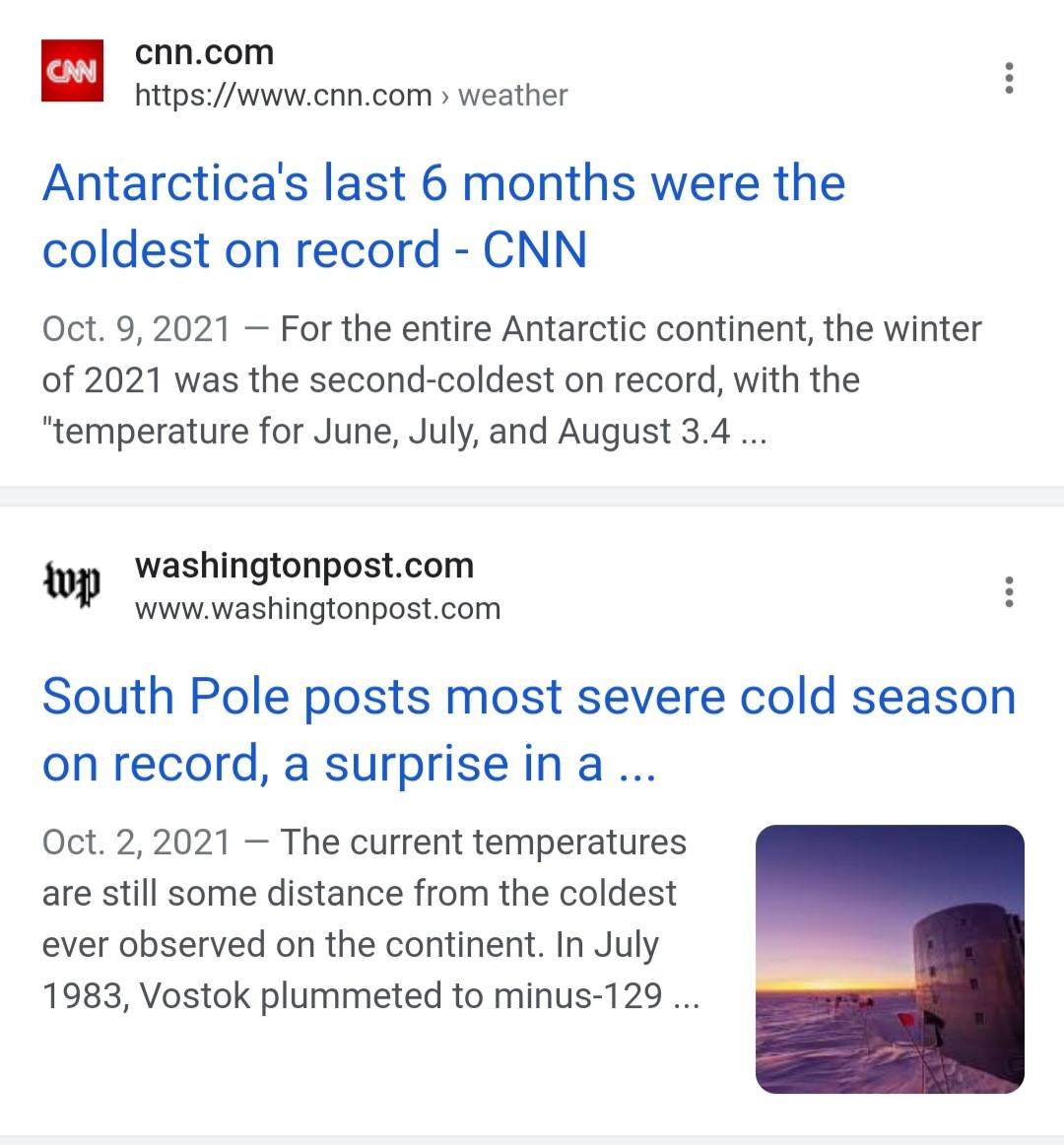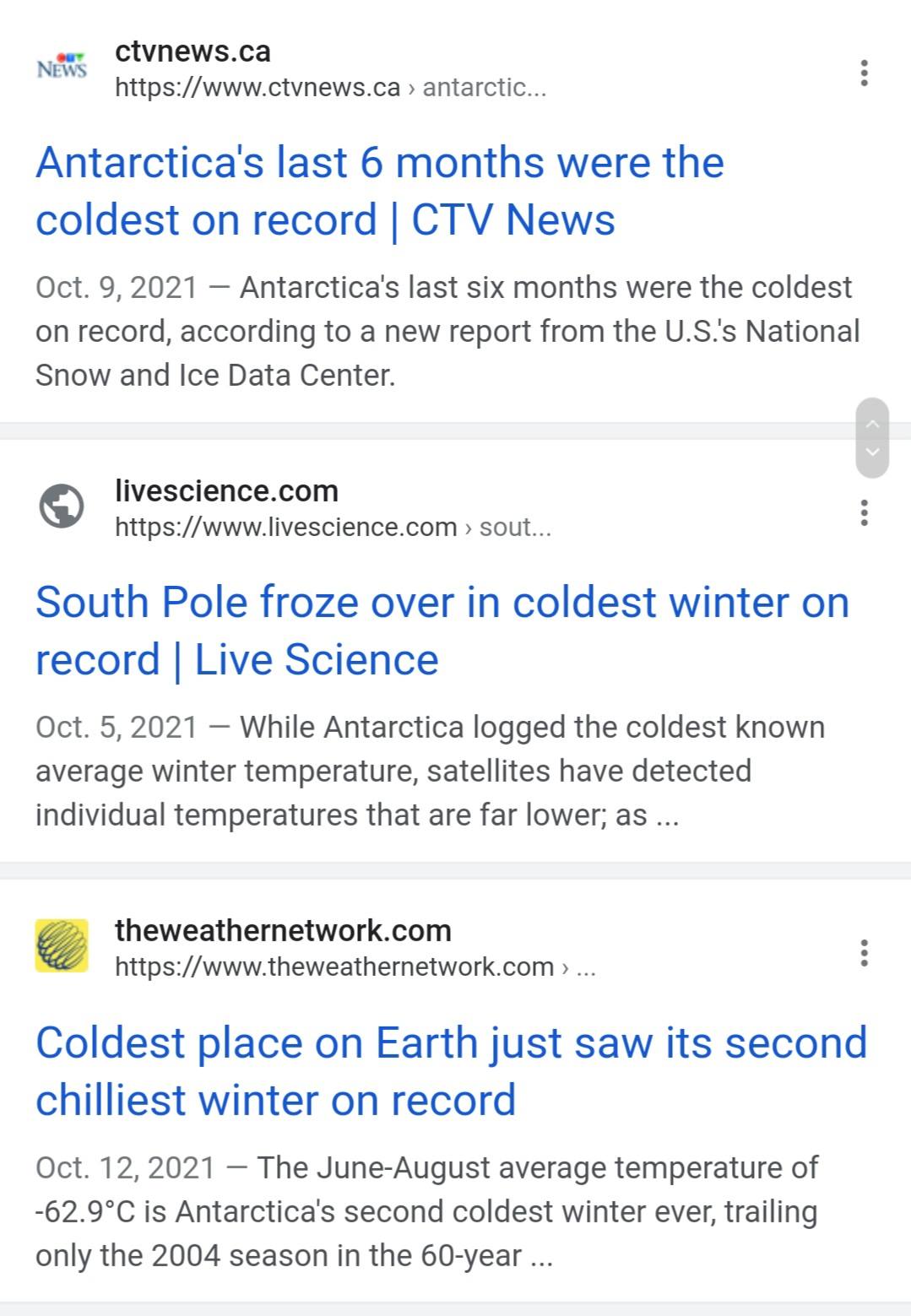Originally posted by chuckChuck
View Post
Announcement
Collapse
No announcement yet.
Alberta Climate Records
Collapse
Logging in...
Welcome to Agriville! You need to login to post messages in the Agriville chat forums. Please login below.
X
-
Yes, when you start your measurements close to the bottom of the cycle, and end close to the top of the cycle, it will show significant changes. Just like if you were to measure the temperature today starting at dawn, and stopping in early afternoon. Then extrapolating that back and forth in time. Completely ignoring the cyclical nature of daylight.
-
Quote from A5 direct from the horses mouth "If Chuck is right, then this year would be a good proxy for what we have to look forward to." Jeez A5 I may be wrong, But I don't think a lot of farmers west of Moose Jaw are hoping this is the new normal and are looking forward to very little crop again!Originally posted by AlbertaFarmer5 View PostIf Chuck is right, then this year would be a good proxy for what we have to look forward to.
We grew our best crops ever, quality and quantity. Could have farmed every acre of swamp and pasture if I had known this was coming. If this was normal, there would be 10 times as much crop land out out this far west. I assume the same thing applies on the northern fringes.
So assume we would lose acres of 20 bushel wheat ground in the Palliser triangle and replace it with 100+ bushel ground in the cooler wetter areas. For not much more fuel, chemical, seed, labor, etc. Which is better for the environment, which is more sustainable?
I need to look up the study we discussed here a while back, indicating that Canada's agriculture stood to gain from global warming. Too bad we are already entrenched into the next cooling phase though.
So was the near record and record heat in 2021 was that an indicator we are in the cooling phase? I don't think so. But it was only one year but a memorable one to be sure. But the summer of 2020 was pretty hot and dry too.
So when southern prairie farmers who suffer drought and crop loss and water shortages and increased evapotranspiration - too bad. But because central and northern grain farmers will do better - no problem? Is that your conclusion and feelings?
We are waiting for the data and analysis that shows the period 1900 - 1950 significantly impacts changes from 1951 -2017.Last edited by chuckChuck; Oct 31, 2021, 11:35.
Comment
-
-
Whats your point? Go back to 1900 then. Show us the data and analysis.Originally posted by blackpowder View Post66 years of records is just that and only that.
Aren't we talking about the period between increased carbon emissions during the industrial revolution and present day?
You do agree that increasing carbon dioxide in the atmosphere is a proven greenhouse gas? If not don't bother with this thread.
Comment
-
Do higher prices (market or by taxation) for anything increase or decrease consumption?Originally posted by Robertbarlage View PostSo paying tax is going to change that?......bahhhhhaaaaa.
Maybe ask Moe and Kenney why they have a carbon tax on large emitters and see what they say.Last edited by chuckChuck; Oct 31, 2021, 11:25.
Comment
-
-
My statement was at least factual even though it didn't contribute other than to point out that simple fact.Originally posted by chuckChuck View PostWhats your point? Go back to 1900 then. Show us the data and analysis.
Aren't we talking about the period between increased carbon emissions during the industrial revolution and present day?
You do agree that increasing carbon dioxide in the atmosphere is a proven greenhouse gas? If not don't bother with this thread.
I really don't care if you felt provoked by it. Sad for you perhaps. Enjoy the journey man.
When you own this site you can kick me off. You are some piece of work.
Comment
-
No chuck. If This is the new normal, then the extreme dry land Farmers don't have to look forward to crop failures forever more. They will adapt and migrate as farmers have been doing since time began. Just like all of the farmer who gave up on the palliser triangle and moved out to this area during the dust bowl years.
Continuous, high inputs non-irrigated farming in the drought prone areas of the semi-arid prairies was never a sustainable practice. We have enjoyed a relatively benign and wet era since settling the prairies. But if you look back to the Paleo climate records, this era has been exceptionally favorable. The lack of extreme and extended droughts throughout the last 120 years is the exception and not the rule in this area.
If your prognostications are correct, the grain belt will shift north and west, the driest areas will revert to grassland. The net effect on production will probably be positive once we adapt to The New normal, as we abandon the least productive acres in favor of increasing the most productive acres.
Unfortunately, your prognostications are 180° opposed to what the cycles indicate is occurring. In which case my area will go back to being moose pasture, and moose jaw will reign as the bread basket.
Production across the prairies will drop due to colder temperatures and shrinking arable area.Last edited by AlbertaFarmer5; Oct 31, 2021, 12:16.
Comment
-
Bring it on. I far prefer the attacks from Chuck's climate cult, compared to the attacks from Chuck's covid Cult.Originally posted by Robertbarlage View Post . Chucks climate cult coming for you!
. Chucks climate cult coming for you!
At least it is relevant to agricultural production and marketing.
And at least there is centuries of data available to have an informed debate.
Never thought I'd say this, but it's good to have the old Chuck back.
Comment
-
Question for all you guys in Alberta , has your growing season been getting longer by 2-5 weeks per years per what was stated in chucky’s article ? Seriously?
So the growing season in Alberta has be getting longer by a month to 2 months every two years ?
Kinda sounds like that rush of news articles from around the world say that every country was warming at twice the rate as every other country ... lol
There are farmers on here from far southern Alberta to the far north , west and east . A real world snap shot of the past 10 years will be interesting.
Remember, frost free days during the growing season are a huge factor . Plants don’t grow very well below zero. How was the fall frost damage the previous few years in Alberta ? Certainly was a huge factor in this area . This is the first year in at least 5 where corn cobs made almost full maturity. Maybe in Alberta that was not the case with your growing seasons being almost 2 months longer now ?
Our last frost in this area this year was June 20th
Comment
- Reply to this Thread
- Return to Topic List


Comment